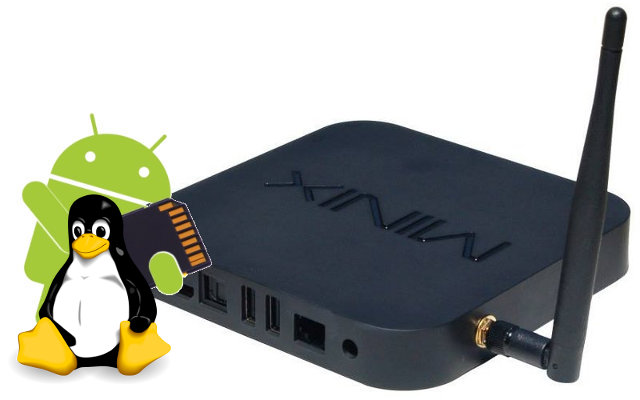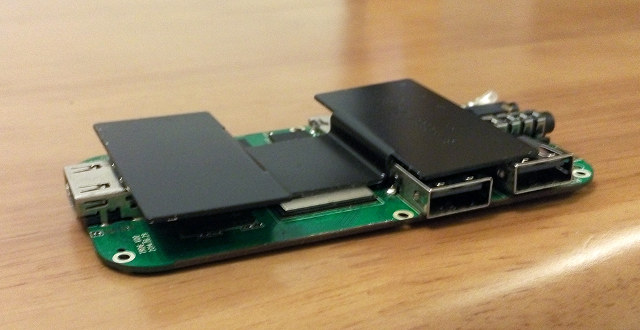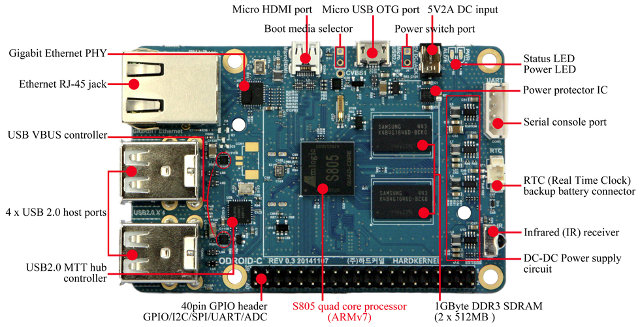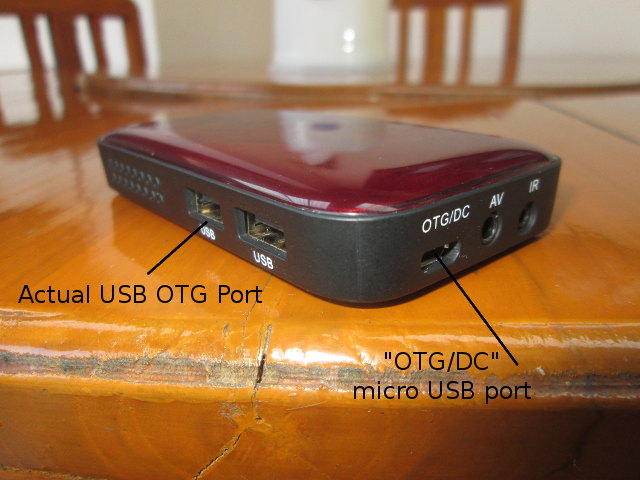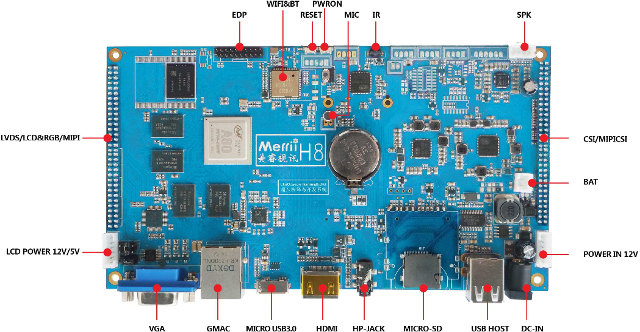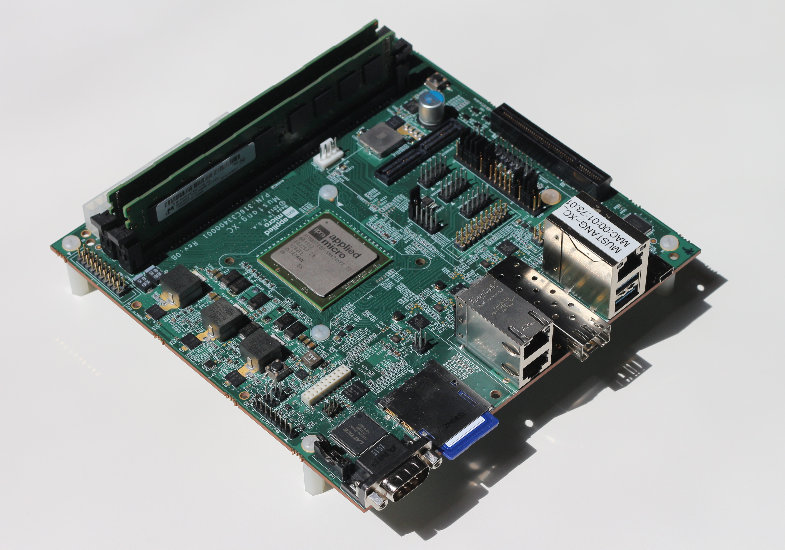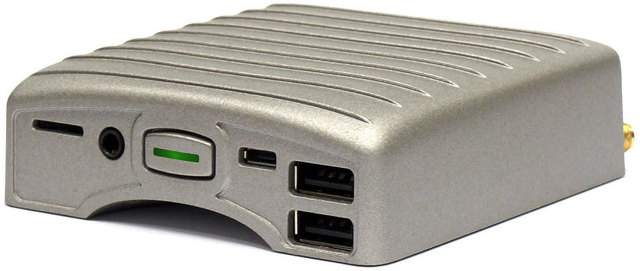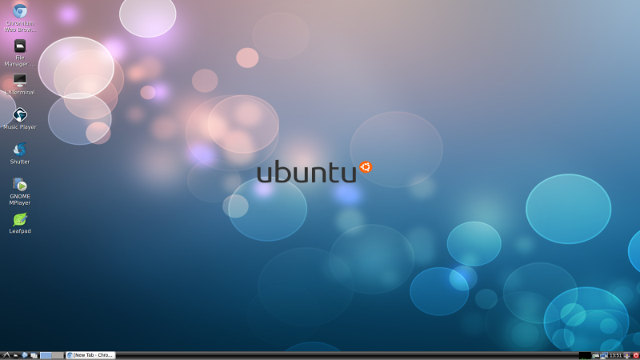There’s already a method to boot Android from an SD Card on RK3188 devices, which should work with all Rockchip RK3188 devices. Ian Morrison (Linuxium) has now provided a instructions to boot Linux or Android from a (micro) SD Card in Rockchip RK3288 based devices, leveraging work from linux-rockchip community, and especially naobsd. The Android flashing method is slightly different between RK3188 and RK3288, because most Rockchip RK3288 devices make use of eMMC flash, while older Rockchip RK3188 products feature NAND flash, and it appears Rockchip RK3xxx boot priorities (in the BootROM stored in the SoC itself) are as follows: eMMC, SD card, and NAND flash. All that means is that an updated version of the bootloader is needed which looks for a bootable SD card, and although very unlikely, your device could end up being bricked during this procedure. This is not a problem for Open Hour Chameleon since […]
Android 4.4 and Ubuntu 14.10 Tested on Ugoos UM3 mini PC (Rockchip RK3288)
A few days ago I posted pictures of Ugoos UM3, a cute mini PC powered by Rockchip RK3288 quad core Cortex A17 processor, with 2GB RAM, 8GB internal storage, a few USB ports, and Wi-Fi 802.11 b/g/n/ac connectivity. There are so many Rockchip RK3288 based TV boxes and sticks on the market, that it has become difficult to differentiate, so Ugoos has decided to support not only Android 4.4 like all their competitors, but also Ubuntu 14.10, and they’ve provided an alpha release of dual boot Android / Ubuntu images for Ugoos UT3 and UM3 models. Yesterday, I flashed the latest Android/Ubuntu firmware for UM3, and tested the image, so today I can report my findings. First of all, I’d like to point out that I received an earlier sample with various flaws that I reported to Ugoos, and they’ve already committed to fixes: 5V/2A power adapter is not powerful […]
Hardkernel ODROID-C1 is a $35 Development Board Powered by Amlogic S805 Quad Core Processor
Amlogic S805 is a quad core Cortex A5 processor which has found it way into low cost devices such as MK808B Plus TV Stick which can be purchased for as low as $30, or full-sized TV box such as MXQ S85 or MINIX NEO X6. All this low cost devices are nice, but the full source code is not available in your want to adapt them to your need. Luckily, Amlogic releases both an Android SDK, and a buildroot for Linux with GPU and Video Processing Unit (VPU) support, so Hardkernel decided to go ahead, designed a board, and has just launched ODROID-C1 quad core development board for just $35, or the exact price of a Raspberry Pi Model B+, but with much greater specs. ODROID-C1 specifications: SoC- Amlogic S805 quad core Cortex-A5 processor with a Mali-450MP2 GPU (2x fragment cores + 2x vertex shader cores) System Memory – 1GB […]
How To Upgrade Firmware on Ugoos UM3 mini PC
Ugoos released two new dual boot Android / Ubuntu images for Ugoos UT3 and UM3, which reduces the size of the system by 300MB, includes LibreOffice, replaces Firefox by Chromium + PepperFlash plugin, and fixes various bugs: ut3_dualboot_v0.2.rar – For UT3 full sized TV box UM3_dualboot_v0.2.rar – For UM3 mini TV box The firmware update procedure for Rockchip RK3288 is well-known, and Ugoos even includes a word file with flashing instructions in Microsoft Windows with the firmware images. However, it still took me about one hour to find out how to do with Ugoos UM3, so I thought I’d write a post in case others encounter the same issue. I flash the firmware in Ubuntu, so instead of using Android Tool, I flashed it with upgrade_tool command line utility I got from Orion R28 SDK, but you can also download Linux_Upgrade_Tool_v1.2.tar.gz directly. First let’s enter recovery mode. The procedure is […]
Merrii A80 Hummingbird Octa-core Development Board Supports HDMI, VGA, and eDP Video Outputs
Up to now at least three boards based on Allwinner A80 processor were available: A80 OptimusBoard by Merrii, pCDuino8 by Linksprite, and Cubieboard4 by Cubitech, and the first two boards are basically the same. Merrii has now introduced a new board which they call “A80 Hummingbird H8”, with more features and ports including HDMI, VGA and eDP video outputs, LVDS / MIPI DSI display interfaces, MIPI CSI camera interface, an RTC with battery and more. Merri H8 specifications: SoC – AllWinner A80 octa-core processor with 4x Cortex 15, 4x Cortex A7 cores in big.LITTLE configuration with Imagination Technologies PowerVR GC6230 GPU compliant with OpenGL ES 3.0/2.0/11, OpenCL 1.1, and DirectX 9.3 System Memory – 2GB DDR3 Storage – 8GB internal storage (Sandisk SDIN7DU2 iNAND Flash), micro SD slot up to 32 GB Video Output/ Display Interfaces HDMI 1.4 up to 4K UHD resolution VGA port eDP v1.2 up to 2560×1600 @ […]
Applied Micro XC-1 Server Development Board (Mustang) is Now Available to Developers for $895
64-bit ARM server boards such as Applied Micro XC-1 Mustang and AMD Opteron A1100 development kit have been available since the beginning of the year, but only to selected companies, and at a price of several thousand dollars per board. Applied Micro is now offering their X-Gene based XC-1 development board to individual developers for $895, or about ~40% discount to the $1495 company now have to pay for the board. It may also be available from distributors (part number: EV-883208-X1-PRB-1). XC-1 board (codenamed Mustang) technical specifications: SoC – Applied Micro X-GeneAPM883208-X1 8-core ARM 64-bit @ 1.6 GHz System Memory – 2x DDR3 UDIMM memory slots up fitted with 2x 4GB sticks (8 GB), upgradable to 16GB Storage – 1x 128Mbit SPI NOR Flash for booting, 1x SATA 3 ports, SD card slot, 1024Kb and 256Kb I2C EEPROM Connectivity – 2x Gigagit port (SGMII), 10 GbE SFP+ cage, 1x Gigabit […]
Compulab Utilite2 is a Snapdragon 600 Powered mini PC Running Android 4.4 or Ubuntu 14.04
Compulab Utilite is a family of mini PC based on Freescale i.MX6 processors that can run either Android or Ubuntu, and was launched in 2013. The company has now introduced the second generation of Utilite computer with a Qualcomm Snapdragon 600 quad core Krait 300 processor, with 2GB RAM, eMMC and mSATA storage, and various network connectivity options such as Wi-Fi, Gigabit Ethernet, and Cellular. Utilite2 will be 30% smaller than the original Utilite computer, and twice the performance of the Utilite Pro with I.MX6 quad. There are two models: Utilite2 4GB, Utilite2 SSD, with the latter adding a 32 GB SSD. Apart from that both models share the same specifications: SoC – Qualcomm Snapdragon 600 APQ8064 quad-core Krait 300 @ 1.7GHz with Adreno 320 GPU compliant with OpenGL ES 1.1 / 2.0 / 3.0 and OpenCL System Memory – 2GB DDR3-1066 Storage – 4GB eMMC, mSATA socket (mini-PCie form-factor, […]
Preliminary Ubuntu Image for Tronsmart Draco AW80 Octa-core mini PC
Tronsmart Draco AW80 is an Allwinner A80 based mini PC pre-loaded with Android 4.4. A preliminary Ubuntu image is now available for the device. It’s still a little buggy, but you can access LXDE desktop on an HDMI TV, Ethernet is working, and web browsing is apparently working nicely. Known bugs include FAT32 partitions are read-only, wireless mouse and keyboard are not working (USB versions are OK), shutdown does not work, the user interface is not as snappy as in Android, and YouTube video playback is choppy. The last two issues could be related to the lack of VPU and GPU drivers providing video hardware decoding, and 2D/3D hardware acceleration respectively. The good news is that the company working on Draco AW80 got the GPU drivers from Imagination, and an updated image could be available with hardware acceleration. I’m not sure sure about VPU support, which is extremely important if […]


